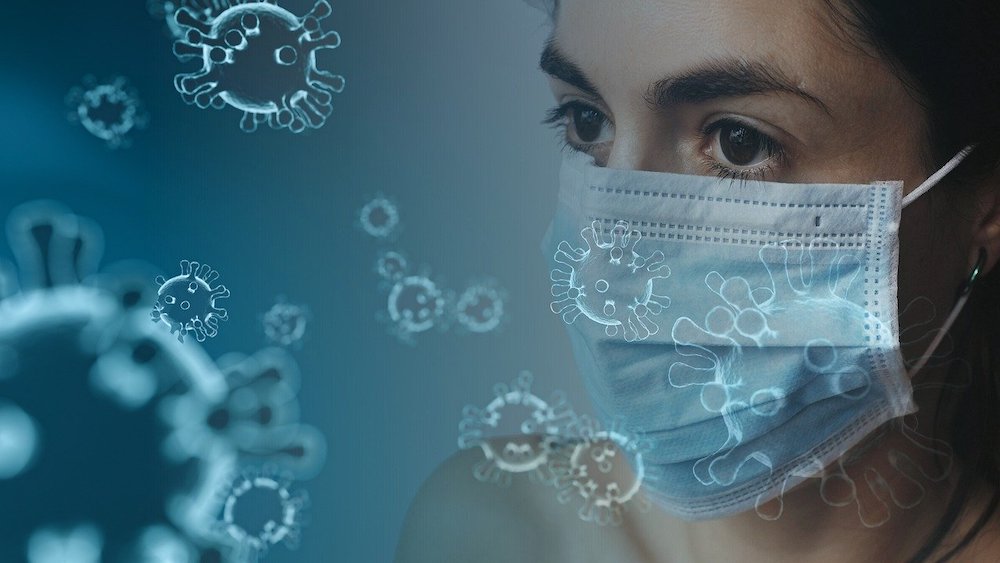All of us have watched in amazement as the events of the spreading coronavirus disease manifests itself throughout the world! Hand sanitizer has vanished, food is flying off shelves, our savings are melting away, and many of us fear how its spread will affect ourselves and our families. What are we to do? Do we succumb to the internet’s preposterous reporting of doom and gloom; believe certain political figures who mitigate this growing threat; or find a place to view this pandemic from a position of fact-finding observation alongside medical experts who are learning along with us?
What We Know
The Symptoms of COVID-19 include a fever and a dry cough. It also may present with respiratory involvement such as difficulty breathing. It is not a cold! It is a coronavirus.
Tips to Stay Safe from COVID-19
- Wash hands for 20 seconds
- Sneeze into your elbow
- Stay home if you are sick
- Clean your phone regularly – they are particularly prone to contamination by organisms
- Keep aware of public railings, doorknobs, escalators, etc with a high volume of contact. Disinfect or wash your hands after this type of contact.
- Those over 60, with pre-existing conditions such as asthma, high blood pressure, etc, should be extra cautious and consider Social Distancing. This may mean non-participation with large groups of people.
- Call your doctor with any health concern. But, if you don’t have the symptoms, you will not be tested. (The availability of testing kits is still in question as of this date)
The Centers for Disease Control (CDC) has put together these helpful guidelines that cover how to keep your workplace, home, school, and business safe: https://www.cdc.gov/coronavirus/2019-ncov/downloads/workplace-school-and-home-guidance.pdf
Consider Social Distancing
Part of a common-sense approach is to voluntarily choose Social Distancing as an immediate response to places with clusters of the disease. You decide where to go for social purposes in large crowds, how many people to expose yourself to, and possibly consider postponing non-essential travel, especially cruises during this uncertain time. Find creative ways to “shake hands” but, by all means, stay in contact with your loved ones and friends. Not attending a large venue does not mean you cut yourself off from others. Since knowledge about this virus still has so many unanswered questions, there is a great deal to learn as our scientists discover how it works. More instructions are certain to follow or be modified in the future as the mystery of this disease is revealed. But, always rely on experts to obtain valid information about this disease!
Additional Resources
Follow these links to those who know the most about COVID-19:
- Latest Information from the Centers for Disease Control (CDC)
- Preventing the Spread of COVID-19 in Homes and Residential Communities (CDC)
- Preventing COVID-19 Spread in Communities (CDC)
- Mitigation Strategies for Communities with Local COVID-19 Transmission (CDC)
- Guidelines from the City of Philadelphia
- COVID-19 updates from the Pennsylvanis Department of Health
- Updates from the World Health Organization (WHO)
- Guidelines for Risk Assessment of Persons with Potential COVID-19 Exposure (CDC)
Complete Care Strategies is developing contingency plans for our care management and home care clients in accordance with the most up-to-date information concerning transmission, management and containment of this virus. We also will be employing technological tools to keep families closely in touch with their loved ones who live at a distance.
We are here to help. Listen for more details.
About the Author
Beverly Bernstein Joie is the founder and president of Complete Care Strategies, a senior care management company serving Philadelphia and its surrounding communities. A Certified Aging Life Care Manager with more than 20 years of experience, Beverly has worked in senior care since 1994, both in assisted living communities and in private practice. She is a member of the Aging Life Care Association and was a former president of the Philadelphia Chapter.
Complete Care Strategies consists of care managers, specialized human service professionals, who advocate and direct the care of seniors and others facing ongoing health challenges. Working with families, its expertise provides the answers at a time of uncertainty. Along with its licensed home care division, it can help clients safely remain at home under the watchful eye of skilled professionals. Families are afforded an integrated model of care that, with guidance and advocacy, lead them to the actions and decisions that ensure quality care and an optimal life for those they love


